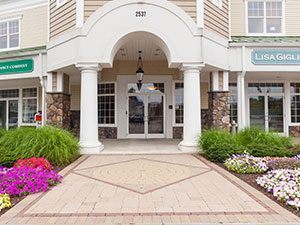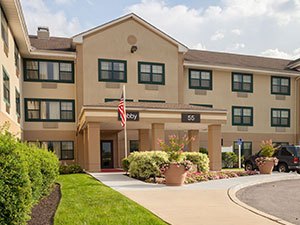You know the importance of finding the best landscape maintenance contractor in Hudson Valley for your commercial property. Your reputation depends on having safe, well-maintained, attractive grounds.
The minute customers approach your property, they form an opinion.
But how you find the best landscape experts is important, too. It all starts with the landscaping request for proposal — RFP for short.
If the idea of a request for a landscaping proposal fills you with dread, we understand. The process may seem daunting, extending well beyond the basic company name and telephone number. Numerous details need consideration, including insurance requirements, automobile liability, and property damage information.
But creating a thorough request for proposal is a great tool for commercial property managers. And that, in the end, helps you choose the best experts and landscape designers for your commercial property.
Do it right, and a potential commercial landscaping company will have everything they need to know about your property in order to give you an informed landscape proposal. Let’s take a look at the five can’t-ignore benefits of creating a request for proposal for commercial landscaping — thoroughly.
Want to know about RFPs? Short on time?
Get our free Ultimate Guide To The RFP Process now.
What is a Request for Proposal RFP?
The RFP process has been used by businesses for many years as a way to vet the offerings of various vendors and to demonstrate the unique benefits of their solutions. RFPs are also used by government agencies and other organizations. An RFP is a formal request in which the issuer asks vendors to submit a proposal letter about the product or service they offer as a solution to what the issuer requires. A competitive bidding process will give the issuer a greater insight into multiple bidders on which landscaping service would best help with their needs. By submitting an RFP, vendors are able to demonstrate their expertise and capabilities, as well as showcase the benefits that their products or services can provide. To a vendor, you are a prospective client that you need to impress in order to get selected for the project or contract. Issuers use RFPs to review multiple vendor landscape proposals and make informed decisions about which vendors they would like to work with. Overall, the RFP process is an effective tool for both businesses seeking new vendors and vendors seeking new business opportunities and potential clients.
5 Benefits of Proposal for Commercial Landscaping
When a business is looking to outsource work, one of the most common methods for finding a qualified landscaping company is by issuing a Request for Proposal (RFP). An RFP is a document that outlines the landscape project and specific requirements that the chosen company must meet. Below are the benefits of issuing an RFP:
Understanding It’s Not All About Cost
Sure, you’re concerned about price. But there’s a lot more to choosing a landscape contractor than just the materials and labor costs.
How each vendor attacks the work detailed in the request for proposal matters.
Your RFP gives you the chance to ask specific questions about the company’s work, to help you zero in on more than just who offers the lowest landscape bid.
Are they efficient? Effective? Reliable?
This is where you clearly define your property’s needs and specifications and find out how each contractor will best meet those needs.
You create the RFP, so you can get the answers to the landscaping questions to ask that are most important to you.
Apples To Apples — Accurately Compare Bids
This is huge. One of the most confusing aspects of choosing a landscape contractor for your commercial property is trying to figure out who does which maintenance service for what price. Whether you are interested in the basics like lawn maintenance, mowing and edging or you are interested in more complex landscaping services like irrigation system installation, it’s important to know what services are offered.
Create a thorough RFP, and you’ll be able to clearly compare.
List everything you need when it comes to landscaping on your property. Be specific. That will make it easier for you to compare apples to apples when reviewing the proposals that come in.
Create detailed maps that highlight each part of the service areas. Break down each service — mowing, pruning, mulch, fertilization, annuals, irrigation — with a price broken out for each section.
Yes, this means more work for the contractors, but it will help you immensely when you review the proposals.
Aim for a specific scope of work that leaves no room for interpretation, and it will make your choice easier in the end.
Find Out Who’s Most Qualified To Handle Your Property
Hopefully, you’ve done your homework and have figured out what landscape contractors in your area are qualified to care for your property.
Remember, you don’t want to send your RFP to dozens of providers — it’s better to submit them to a few of the best companies.
But a thorough RFP gives contractors a chance to share details about their qualifications that may set them apart from the competition. That’s additional information you can use.
Yes, you’ll ask about:
- licensing
- certification
- training
- insurance coverage
This is also your chance to make your priorities clear. Is environmental leadership important to you? Ask for a list of LEED projects or examples of their environmental initiatives.
Weeds Out The…Weeds
You can tell a lot about the integrity of a contractor by the way they complete your RFP submittal.
Did they leave a third of the proposal blank? Do they understand the scope of services – weed control, aeration, pest control, etc. – required for your property? You can tell how knowledgeable and comfortable they are by reading their responses.
Did they readily include client references? A side note here: Be sure to talk to references. Do they speak highly of the contractor’s work and their responsiveness? What were their biggest complaints? If the undersigned contractor won’t provide references, that’s a red flag.
A Contract Free Of Surprises
If you create a comprehensive, detailed request for proposal, you’ll know exactly what each landscape management contractor has pledged to provide. No surprises.
No unexpected weeding bill — you already asked about that cost.
Is spring clean-up included? You’ll already know.
Knowing exactly what services are offered for what price helps you stay on budget — and gives you peace of mind that all the details of your property’s care will be addressed.
RFP Process Flow
A Request for Proposal (RFP) is a document that potential vendors submit to potential buyers for a specific project, in order to bid on supplying a good or service to the buyer. The RFP process flow generally goes like this:
- The project manager of the company creates an RFP and sends it out to interested vendors.
- Vendors respond and the issuer evaluates the proposals and selects a supplier.
- The issuer and vendor sign a contract.
- The vendor provides the good or service to the issuer according to the terms of the contract.
Need Help Creating A Request For Proposal? Ask Neave
At Neave Group Outdoor Solutions, we understand the value of matching the right landscape contractor to the right commercial property.
The right fit benefits everybody.
That’s why we care about a quality request for proposal. It’s part of the high standards and attention to detail that have made us the top choice for commercial property owners for decades.
Neave’s “Ultimate Guide to the RFP Process” can make sure your RFP results in the best partner for the job.
Check it out. Then, we’d love to hear from you.
If you’re in the Hudson Valley, call us at (845) 463-0592. If you’re in Westchester County, call (914) 271-7996; from Connecticut, dial (203) 212-4800. Or, fill out our simple web form, and we’ll contact you about setting up your free consultation.

Images: Apples, Dandelions
